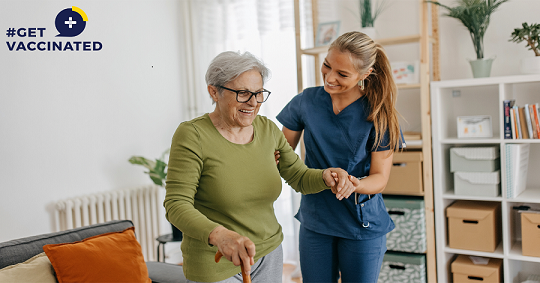Vaccination against influenza (flu), COVID-19, and RSV reduces the likelihood of serious illness, hospitalization, or even death in long term care residents. LTC providers play an important role in protecting their residents by promoting vaccination against these viruses. And while influenza and COVID-19 vaccine are ideally administered in the fall, there is no wrong time to get vaccinated against these viruses.
- Incorporate Vaccination into Admission Protocols
When new residents are admitted, ensure that vaccination is part of the standard intake procedure. This means reviewing their vaccination history, checking for any necessary vaccines, and administering them as soon as possible.
- Educate Residents and Families
Many families may not fully understand the importance of vaccinations, especially when it comes to respiratory viruses. Provide clear and concise information about the benefits of vaccination and how it protects not only the individual but the entire community within your nursing home. Check out the AHCA/NCAL #GetVaccinated website for resources to support these conversations.
- Ensure Accessibility
Make the vaccination process as easy as possible. This could involve offering vaccines on-site or coordinating with local health providers for timely administration.
- Document and Follow-Up
Keep accurate records of vaccinations administered and follow up with residents who may have missed their vaccines at the time of admission. Regularly review resident records to ensure they stay up-to-date on necessary immunizations.
- Promote a Culture of Prevention
Foster an environment where vaccination and disease prevention are seen as routine, essential parts of resident care. This will not only increase vaccination rates but also contribute to a culture of health and well-being within your facility.



